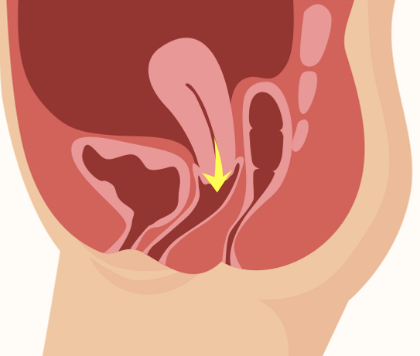What is the uterine microbiome?
The uterine microbiome consists of the unique composition of bacteria and other microorganisms present in the uterine environment.
This microbiome varies based on factors such as age, ethnicity, hormonal changes, and the use of intrauterine devices (IUDs).
1. Fertility
A healthy uterine microbiome (typically dominated by Lactobacillus species) has been associated with better fertility and success rates.
An abnormal endometrial microbiome is linked to fertility issues including recurrent embryo implantation failure[1].
2. Pregnancy Outcomes
A balanced microbiome has been show to correlate with higher success rates in live birth outcomes[2].
In comparison, dsybiosis has been linked to concerns such as preterm labour and low birth weight.
3. Vaginal Microbiome
Pathogenic bacteria found in endometrial microbiome, are similar to those found lower in the genital tract of women with BV[3].
Theis suggests that there are links between the vaginal and uterine microbiomes.
4. Infection Risk
Beneficial bacteria produce lactic acid and other antimicrobials that inhibit the growth of pathogens and protect against infections.
Therefore, dsybiosis may increase risk of infections and the risk of PID (pelvic inflammatory disease) or endometritis.
What does ScreenMe test for?
ScreenMe screens every species present in your microbiome using gold-standard, NGS technology.
Our tests are 99.9% accurate so if it is there, we will spot it! This includes species such as: Ureaplasma, Prevotella species, Gardnerella, (with a database of over 500,000 species)!
Results come with a tailored report and consultation, so you can create a bespoke plan of action that works for you.
Conclusion
It’s important to note that while these associations are compelling, the uterine microbiome test is not a diagnostic tool.
This area of research is rapidly evolving, and ongoing studies are needed to fully understand the role of the endometrial microbiome in various health conditions. Therefore, at ScreenMe, not only do we provide answers, but we also work hard to contribute to the research into the black box that is women’s reproductive health!
References
Moreno, I., Codoñer, F. M., Vilella, F., Valbuena, D., Martinez-Blanch, J. F., Jimenez-Almazan, J., … & Simon, C. (2016). Evidence that the endometrial microbiota has an effect on implantation success or failure. American Journal of Obstetrics and Gynecology, 215(6), 684-703.
Ravel, J., Moreno, I., Simón, C., Borenstein, E., Llamas, R., Torres, P. J., … & Codoñer, F. M. (2021). Vaginal microbiome as a key player in reproductive health. Nature Reviews Urology, 18(4), 209-222.
Verstraelen, H., Vilchez-Vargas, R., Desimpel, F., Jauregui, R., Vankeirsbilck, N., Weyers, S., … & Pieper, D. H. (2016). Characterization of the human uterine microbiome in non-pregnant women through deep sequencing of the V1-2 region of the 16S rRNA gene. PeerJ, 4, e1602.




